The Transformative Power of Positive Self-Talk
Let’s start with a question: When was the last time you paid attention to the words you say to yourself? Not the words you say to others, not the ones you post online, but those private conversations—the ones that happen silently in your mind.
Because here’s the thing: Those words matter. In fact, they matter more than we often realize. The words we whisper to ourselves can either be the winds that lift us higher or the chains that hold us back. Tonight, I want to share with you how positive self-talk—a practice so simple, yet so powerful—can shape not just our individual lives, but our families, our communities, and even the world we build together.
Picture this: You’re climbing a mountain, but your backpack is heavy. It’s full of stones, each one placed there by the words you tell yourself. “I’m not good enough.” Thunk. “I always mess things up.” Another stone added. Every time you doubt yourself, every harsh criticism you silently mutter, another stone drops in.
And we carry these stones without realizing how much they weigh us down—until we feel too exhausted to climb. Too tired to dream bigger. Too stuck to believe there’s a better way forward.
Now, what happens when we start removing those stones? When we trade “I can’t” for “I’m learning”? When we replace “I always fail” with “I’m getting stronger every day”? That mountain—the same one that felt impossible just moments ago—suddenly becomes climbable. Maybe even exciting.
This is the power of positive self-talk. It’s not about pretending the mountain isn’t there; it’s about lightening the load you carry as you climb.
Let’s bring this closer to home—literally. The words we use with ourselves don’t stay hidden; they seep into the walls of our homes and the ears of our children. Imagine a parent constantly saying, “I’m terrible at this,” or “I’m not good enough.” A child overhears those words, absorbs them, and starts thinking, If my parent can’t handle life, what does that mean for me?
But here’s the good news: It works the other way, too. Imagine that same parent saying, “I’m learning every day,” or “I’m proud of the effort I put in.” Now the child learns that mistakes are part of growth. That self-compassion isn’t weakness—it’s strength.
When you model positive self-talk, you’re not just speaking to yourself; you’re planting seeds of resilience in the hearts of everyone who hears you. And those seeds? They grow into families that support, encourage, and thrive together.
Now, let’s zoom out to the community level. If each of us walks through life weighed down by negativity, what kind of energy do we bring to the people around us? Communities can’t thrive on self-doubt and criticism. But if we learn to uplift ourselves, we naturally begin uplifting others.
A person who speaks kindly to themselves is more likely to lend a hand, offer encouragement, and build connections. And as more people embrace this mindset, it spreads like a ripple in a pond, creating networks of support, compassion, and collaboration. The collective result? A community rooted in strength, resilience, and possibility.
But I know what some of you might be thinking: This all sounds great, but how do I start? So let me share a few steps to help you begin:
- Catch Yourself in the Act
Pay attention to your thoughts. Notice when negativity sneaks in. Don’t judge it—just recognize it and pause. - Reframe the Narrative
Shift “I can’t do this” to “This is tough, but I’m capable.” You’re not ignoring reality; you’re choosing a perspective that helps you grow. - Practice Affirmations
Write down simple, meaningful statements like, “I am enough,” or “I handle challenges with grace.” Say them aloud. Often. - Celebrate Progress
Even the smallest wins matter. Caught a negative thought and reframed it today? That’s a victory worth celebrating. - Surround Yourself with Positivity
Build a network of people, resources, and habits that reinforce your journey. Community matters, and the company you keep influences the dialogue within.
As we wrap up, remember this: Every word you say to yourself builds the story you live in. Speak kindly. Speak truthfully. Speak words that empower, not words that tear down.
Because when you change your inner dialogue, you change your perspective. When you change your perspective, you change your world. And when you change your world, you inspire others to change theirs, too.
So, my challenge to you is simple: What’s the first stone you’ll remove from your backpack? And what’s the first kind word you’ll give yourself in its place?
Let’s start the climb together.

